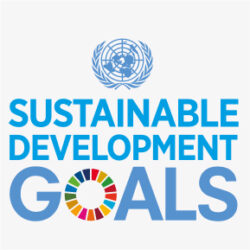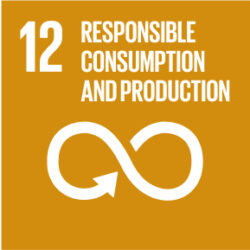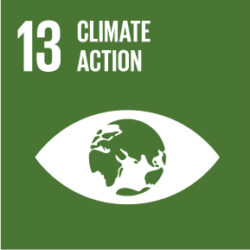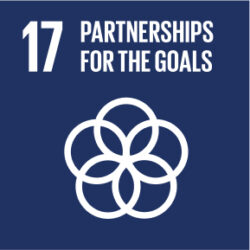Carbon Reduction
Our planet is facing an unprecedented, global environmental crisis.
At Iceland, we believe that every business has a responsibility to take action against climate change and reduce its carbon footprint.
We are working hard to cut down the carbon emissions in our own operations, reduce our energy demand, and maximise the use of environmentally-friendly gases.







Carbon Reduction Highlights
reduction in operational carbon since 2011
of our annual electricity comes from a large off site solar farm
Committed to net zero for all products sold in the UK by
2040Reducing our carbon footprint
Iceland is a signatory to the Courtauld Commitment 2030. This ambitious voluntary agreement brings together organisations across the food industry to make food and drink production and consumption more sustainable.
In 2020 we updated our targets to reduce our carbon footprint across our own operations and supply chain by:
- 50% reduction in absolute GHG emissions by 2030
- Net Zero for electricity use by 2030
- Net zero for UK fuel, gas and refrigerant gas by 2035
- Net zero for all products sold in the UK by 2040
In February 2021 we were the first food retailer globally to sign up to the Amazon Climate Pledge, a commitment to be net-zero by 2040 – a decade ahead of the Paris Agreement’s goal of 2050.
Iceland worked with the Carbon Trust to measure our scope 3 carbon footprint in 2021. The Carbon Trust will also be reviewing our scope 1 & 2 emissions to validate our methodology and to ensure no areas are overlooked within both scopes’ calculations.


Scope 1
Our scope 1 emissions come directly from sources we own or control like heating and transport.
Scope 2
Our scope 2 emissions are based on the electricity we buy. 100% of the electricity we purchase is from renewable sources, using the market-based method for scope 2 reporting.
Scope 3
Our scope 3 emissions cover our value chain; the majority of our emissions come from the production and processing of products we sell.
Nomad Foods Life Cycle Analysis
Iceland is proud to have collaborated with Nomad Foods and Birds Eye teams to conduct life cycle analysis for 22 products, frozen, chilled and ambient versions, to assess and seek to understand the environmental impact of products from individual ingredients, through the supply chain to manufacturing, retail and consumption at home.
Our progress
In our baseline year of 2011/12, the business generated 263,461 tCO2e through its direct operations (scope 1 and 2 emissions).
The majority of our remaining scope 1 and 2 emissions are directly attributed to transporting products across our business and to our
customers. For 2024/25 we generated 157,807 tCO2e, which is a 40% reduction on our baseline year. 157,807 tCO2e is a 2.9% year on year reduction and we will continue towards reducing our overall energy consumption and associated emissions.

How we’re taking action to reduce our carbon footprint…

Renewable energy
100% of electricity purchased for Iceland sites in the UK comes from renewable sources, supported by green energy certificates. In 2019, we stopped using our on-site generators. Now they are only used if the main electricity supply is lost.

Environmentally-friendly depots
Iceland has signed a Climate Change Agreement (CCA) administered by DEFRA for temperature controlled storage buildings. We have surpassed our energy reduction targets for our depots every year since 2015.

Our logistics partner
We are working with GXO Logistics, a leading global provider of transportation and logistics solutions, to find innovative ways to make our fleet of HGVs more environmentally-friendly. We plan to trial electric vehicles for inner-city deliveries and have been investigating innovations in technology to enhance the thermal properties of our refrigerated trailers.

More efficient equipment
We have an ongoing asset replacement programme, replacing our older freezers with new, more efficient versions. Not only do the new freezers use natural refrigerants wherever possible, they also provide energy saving benefits. On average, stores refitted with new freezers consume 30% less energy than stores using older equipment.
All our signage and store lighting has been upgraded to LEDs. To further save energy, we have installed automatic lighting throughout the estate that is synchronised to stores’ trading times and security alarms. This means only 50% of salesfloor lighting is used when the stores are closed to the public, and all lighting is turned off when the security alarms are activated.
Our fleet
Safe, energy-efficient driving
All Iceland Home Delivery Drivers are part of an innovative telematics programme. They undertake specific training to enhance their driving skills, focusing on techniques to improve safe driving and increase fuel efficiency. In addition, our route planning system is designed to calculate the most fuel-efficient routes, meaning our drivers do not waste time or fuel on unnecessary journey points.
Refrigerant gases
We are working to further improve the accuracy of our data relating to refrigerant gases by providing our engineers with further training. Additionally, we continue to switch to more environmentally-friendly gases.
Electric and hybrid vehicles
In the last year, almost a quarter of our company cars have been switched to hybrid vehicles, which has reduced the average carbon output for the overall fleet by 10%. We continue to offer hybrid vehicles to colleagues eligible for company cars. In the first half of 2022 we installed electric vehicle charging points at our Deeside head office and depot, providing staff and visitors with access to EV charging. We will also be trialling electric home delivery vans in early 2022.
Maximising efficiency
Our Heavy Goods Vehicle (HGV) fleet is regularly renewed with the aim of maximising fuel economy and minimising emissions. We are working closely with our suppliers and third-party logistics companies to make sure our deliveries to and from our depots are as efficient as possible. As much as we can, we route our HGVs to collect stock directly from the supplier, third party distribution centre, or pick up recyclable waste from our stores, on their return journeys to our depots. This helps to reduce the overall number of vehicles on the roads and avoids unnecessary journeys.





